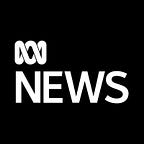Is it ever OK to ask if someone’s pregnant?
Want to offer your seat to a fellow commuter, but not sure whether she’s ‘with child’ or just had a big meal?
Opinion by Jo Fox
Any woman who’s been pregnant and had to catch public transport knows a battle may be on their hands to cadge a seat from a stranger.
My experience of pregnant tube seat-wrangling in London was that people remained firmly glued to whatever was in their hands, with the explicit aim of never seeing you.
During the entire gestational period the only people who ever offered me a seat were young ethnic men, no doubt a legacy of a more matriarchal upbringing.
It didn’t really bother me that much — I was fortunate enough not to travel every day in peak period.
Besides, a fetal-carrying woman is far more freaked out by the sheer deluge of humanity flowing down the stairs than the strange comfort of being snugly ensconced under someone’s armpit on the tube.
But mainly I figured that, being Australian, I would simply take the radical approach of asking for the seat that was clearly marked for pregnant or disabled people if I needed it.
No-one ever said no. Some looked a little annoyed.
Now, a new — and very British — app hopes to revolutionise such interactions by helping pregnant women request a seat on public transport… without having to talk.
The app, called Babee on Board, aims to end the apparently eternal social awkwardness of whether that woman casting baleful glances around her seated fellow-commuters has a baby on board, or simply a burger on board.
How does the app work?
Mothers-to-be download a 3.99 pounds ($6.60) “request seat” app — which uses Bluetooth so it works without a signal or Wi-Fi — to send alerts, and anyone can download a second free app to receive requests and offer their seat.
The app developers say the cost is to provide a barrier to use for pretend-pregnant-pranksters (do they exist?).
And, of course, its success depends on non-pregnant travellers electing to help and downloading it in the first place.
Once a passenger has received a notification that their seat is needed, their phone gives an audio or vibrating alert, at which point the difficult part for the Brits begins: they have to make eye contact for the proffered seat to occur.
Babee on Board builds on the success of Transport for London’s (TfL) ‘baby on board’ badges, which are given out to pregnant women on request.
Yet despite the visible volume of these badges — an astonishing 310,000 are claimed each year — the app’s developers research found more than a third of pregnant women regularly stood during their commute because other passengers appeared too busy gazing at their phones or newspapers to look around them. (Like I said…)
PSA: ‘I’m up the duff!’
I was never really sure about the badges.
Not just because they weren’t a terribly chic accessory, or that I didn’t really want to broadcast “I’m up the duff” to the world.
It wasn’t even because that, by the end, it was pretty damn obvious I was smuggling an extra body in, and it felt a little passive aggressive to be eyeballing people, almost daring them to notice and do something.
I just wasn’t that keen to be labelled, and especially to be labelled in a way that considered me closer to an invalid.
Isn’t this the kind of type-casting women have spent so long convincing people of — that we are pregnant, not broken?
And that we, in tandem with our doctor or midwife, know what’s best for the specific circumstances of us and our babies rather than a blanket and often outdated ban on everything?
As a pregnant woman I didn’t want any stranger or non-medical person telling me what I should do.
I was annoyed every time a waiter suggested I have a decaf or herbal tea when I really wanted — and was definitely going to have — the glass of wine I had saved up all week for.
I ended up changing the subject when people told me I was doing too much or not enough exercise; or how I must breastfeed or have a natural birth. All without knowing any of my medical background.
Surely it’s all about common courtesy?
I also thought it was a little unfair that I was freely provided a badge when there were many more people taking transport every day who were in worse nick than me — those who were undergoing chemotherapy or had just had an operation, for example — and whose need for a seat may be difficult to visibly spot.
And it appears TfL has also clocked this, as they have recently launched a new blue badge for passengers with disabilities or hidden conditions to alert fellow passengers of their need for a seat on public transport.
At the end of the day, however, surely it’s all about common courtesy and a bit of consideration, not an app.
By all means do not feel afraid to ask if someone wants a seat — you don’t have to shout out, ‘Hey, preggers!’ if you’re unsure. Just make a polite enquiry.
Don’t push it if she does not want a seat — she may actually be on her way to the gym, but will appreciate the offer.
And ladies, just ask nicely if you need one.
Better still, it won’t cost you $6.60 — courtesy is free.
